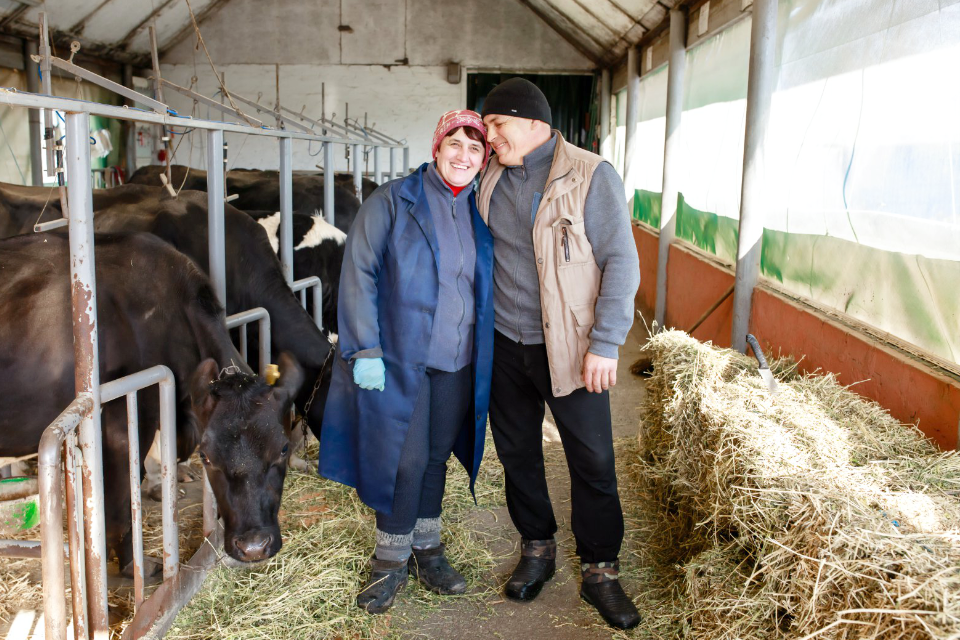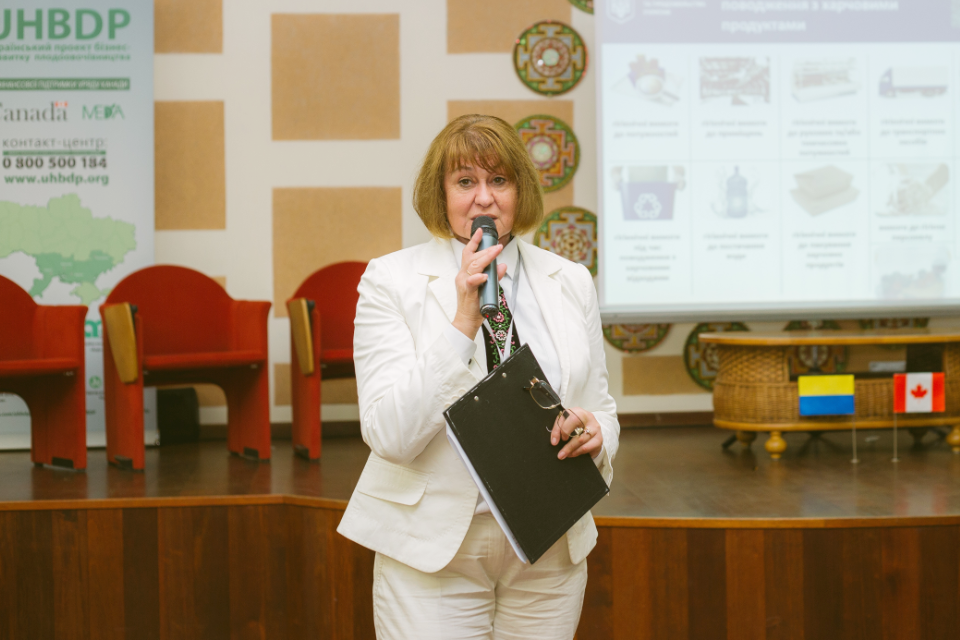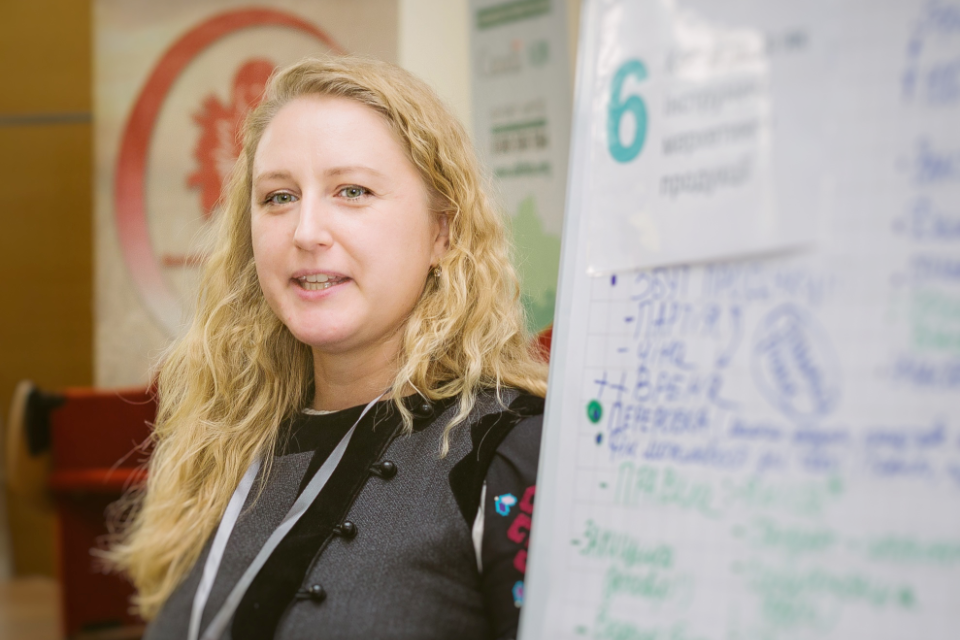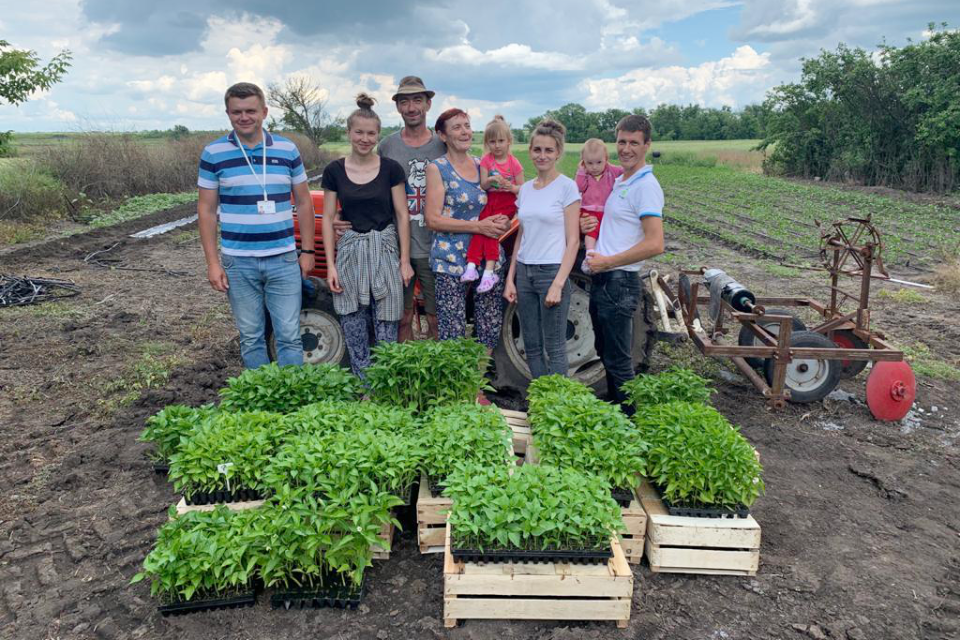Improving livelihoods of rural women across Ukraine
Date:
The public association the Rural Women's Business Network recently signed a Partner Agreement with the UN Women Project, Advancing Gender Equality and Women’s Empowerment through Decentralization Reform of Ukraine. This initiative is funded by the Government of Canada. Under the new Partner Agreement , the Association will facilitate mobilization of women from 13 communities to participate in local governance across four regions: Volyn, Chernivtsi, Kherson and Sumy.

A third of women in Ukraine live in rural areas. Not all of them have consistent access to water, quality health care and the Internet. Many processes remain non-mechanized and require hard physical labour. However, the situation of women farmers is gradually changing, and their activities are becoming a full-fledged business with prospects for development. The Rural Women's Business Network has been systematically operating for over a decade. The Association brings together women farmers from all over Ukraine to share their experiences, provide opportunities to study, improve their skills, form business plans and familiarize themselves with changes in legislation. One of the focuses of the Public Association is overcoming stereotypes and combating discrimination against rural women.
Yaroslava Sorokopud is the chair of the board of the Rural Women's Business Network and Sofia Burtak, director.

“The information space is not so accessible to women farmers. Not everyone has access to the Internet, and often the only channel of communication is radio, and women themselves are engaged in their households 24/7. Often women farmers combine three or four social roles. They must be mothers, farmers and work in their main job, such as a school or shop,” Sorokopud explains.
Against the background of such challenges, the idea to host an annual Forum of Women Farmers arose. The Forum raise women's awareness of their rights, new technologies and opportunities.
“The Forum of Ukrainian Women Farmers is the Ukrainian-Canadian project ‘Development of the Dairy Business in Ukraine’ and ‘The Ukrainian Fruit and Vegetable Business Development Project’ (UHBDP), which have joined forces to increase competitiveness and competence of women farmers,” Sorokopud said.
But not all rural women are involved in innovations; women are still busy with survival and providing for their families. Only every sixth person engaged in agriculture is officially employed. Women and men grow and sell agricultural products independently of each other, often without the opportunity to take advantage of the benefits and subsidies of official workers. The Rural Women's Business Network can provide expert assistance and assessments, as well as trainings for women who want to become entrepreneurs and participate in the formal sector.

Sofia Burtak is the Director of the Rural Women’s Business Network. “Our network is a community. The organization was created for communication and exchange of experience between women. The research we have conducted with rural women has shown that access to resources is a problem. Women have less access to productive resources in their daily work. This applies to all rural women, as they must engage in both productive and reproductive labour, often with ancillary rural production. For the whole family to feel good, they need access to production resources such as harvesters, mechanized equipment. This is where the problem of gender imbalance is hidden, since only 35 per cent of adult women and 19 per cent of young women have access to such resources."

Burtak gives an example of what such an imbalance looks in real life: “A man bought a potato planter to plant potatoes, this process is mechanized. But the man did not buy a potato harvester. So, his wife, mother of ten children, together with other women, is forced to pick potatoes by hand because it is considered a woman's work. "
According to Burtak and Sorokopud, the gender division of labour is a thing of the past. “Can a man milk a cow? – Yes, he can. Can a woman drive a tractor and harvester? – Yes, she can. Both women and men can learn to use drones and essential software. "
A study by the ‘Rural Women's Business Network’ and ‘Dairy Farmers’ found that labour mechanization affects farmers' sense of happiness. The more mechanized the work, then the more time people have for leisure, and the happier they feel.
An article was prepared within the framework of UN Women Project “Advancing Gender Equality and Women’s Empowerment through Decentralization Reform of Ukraine” funded by the Government of Canada.